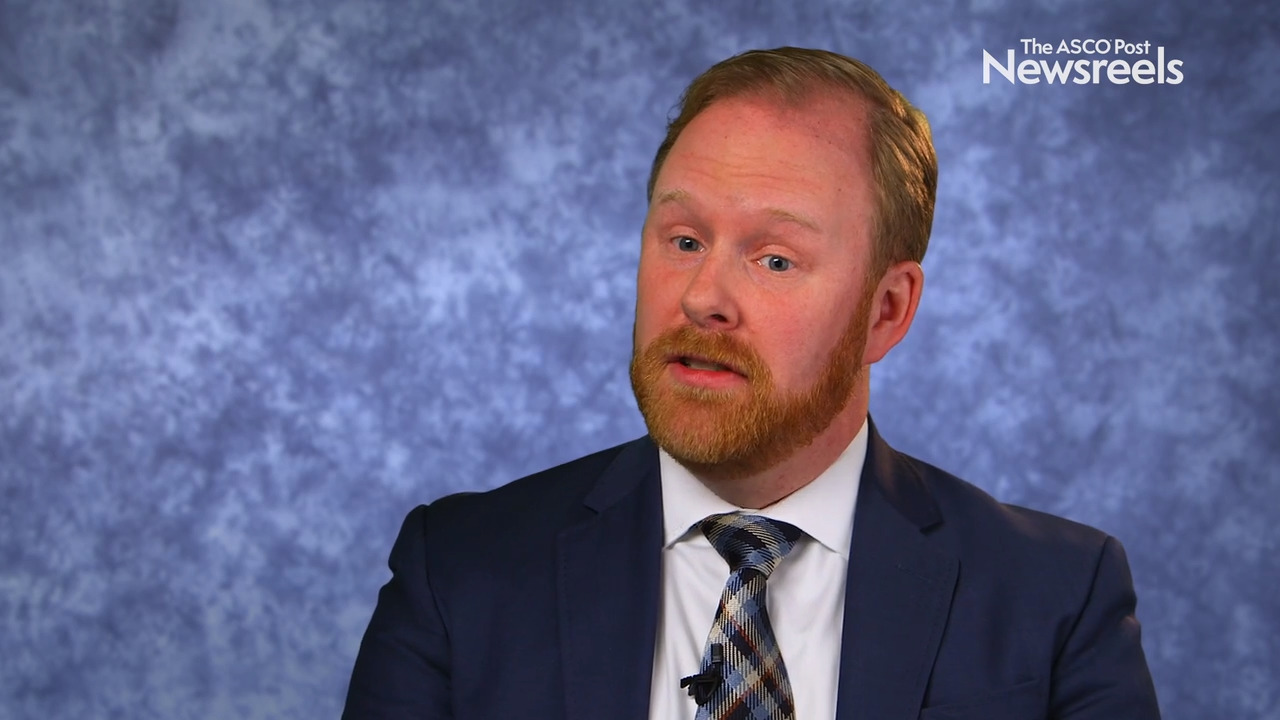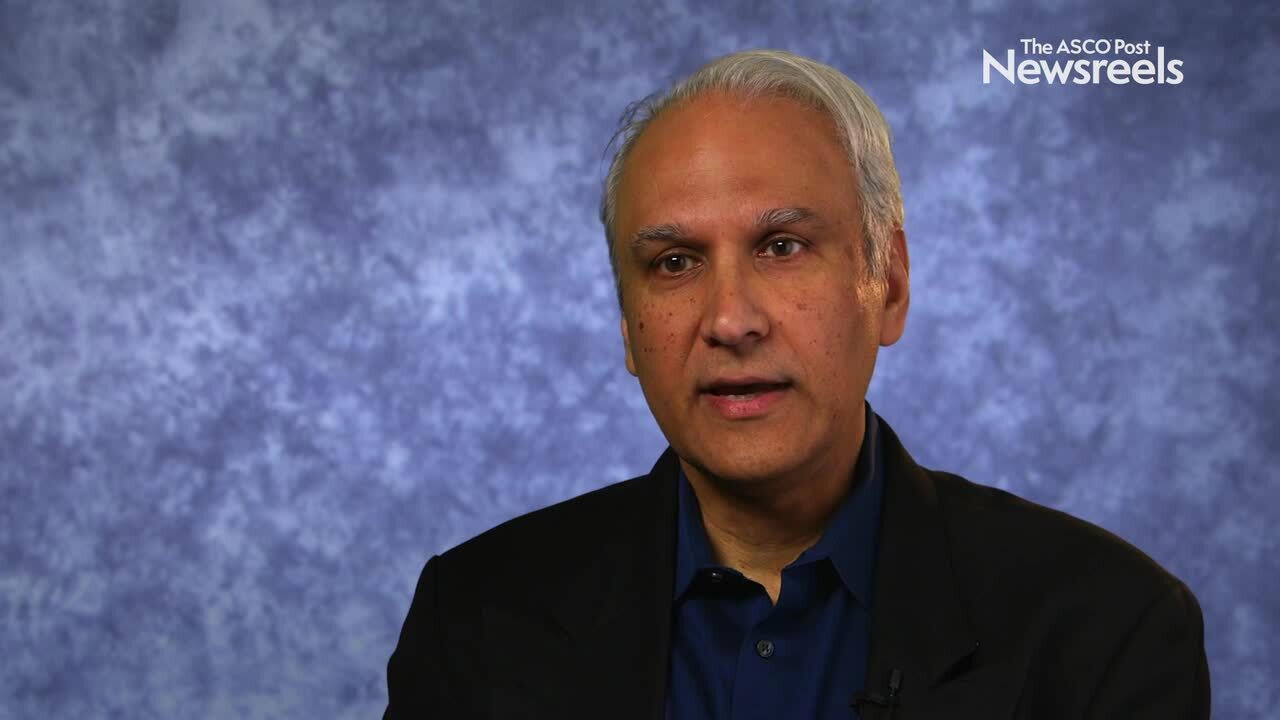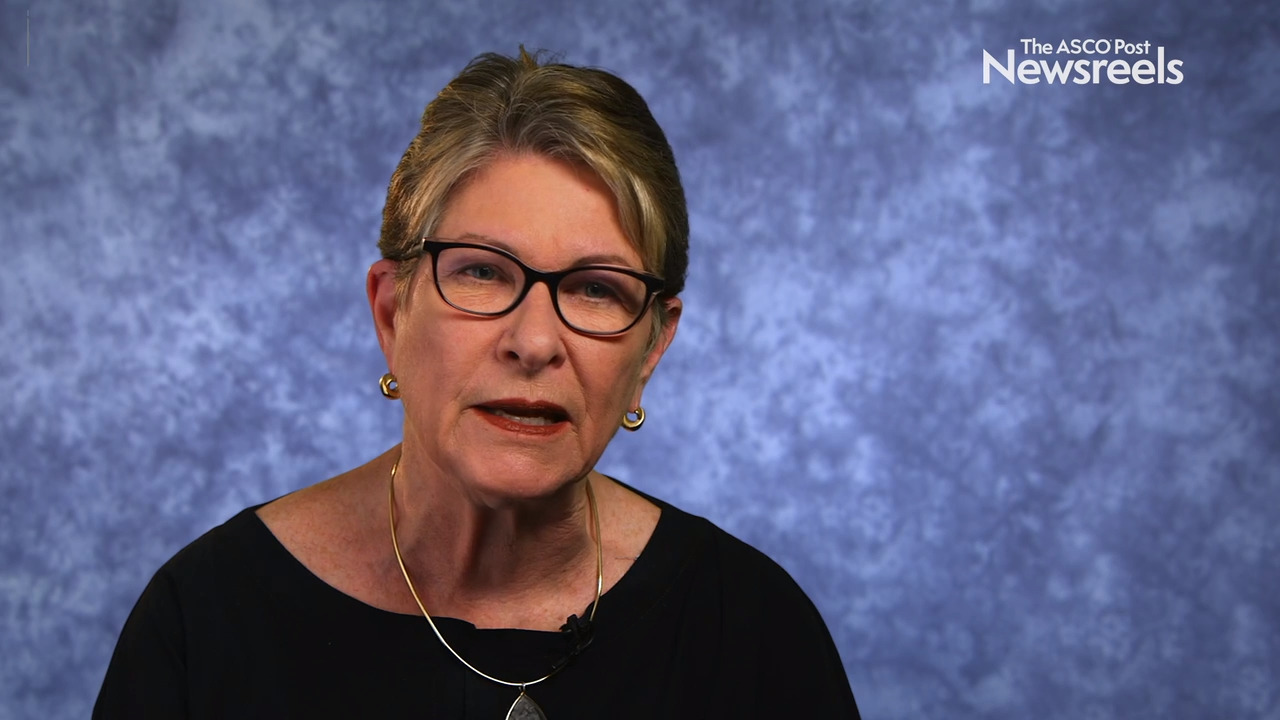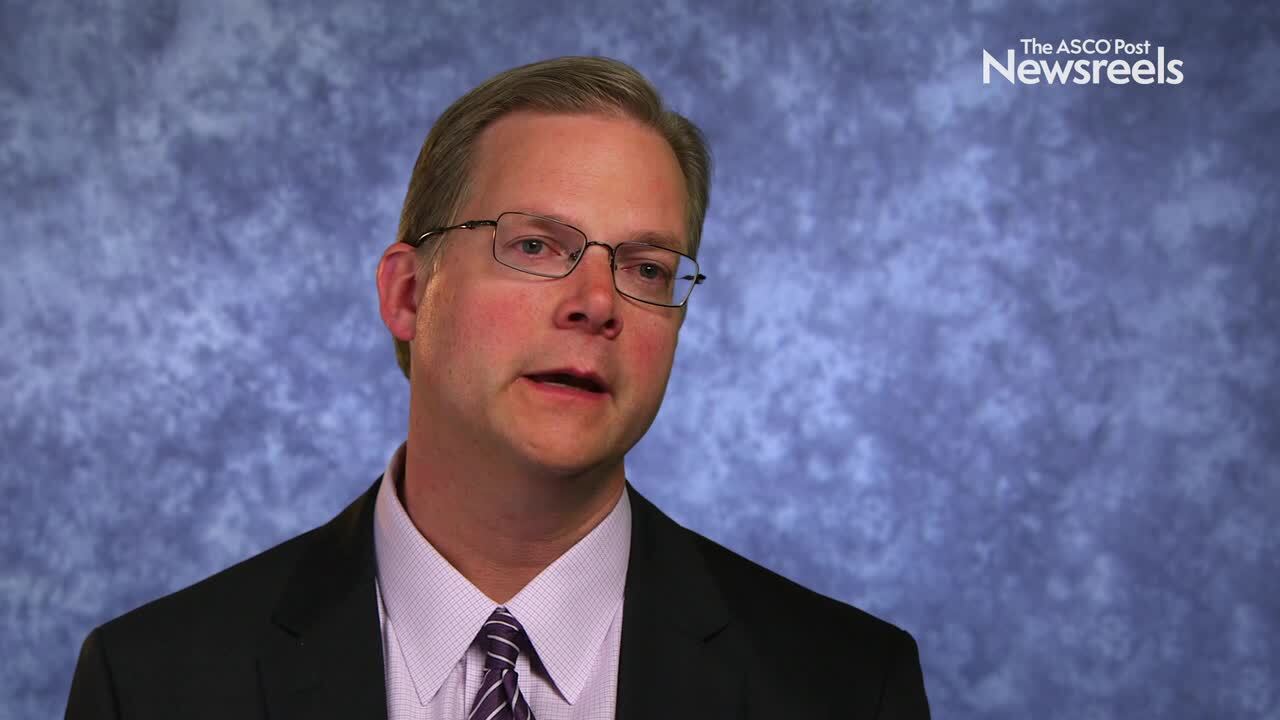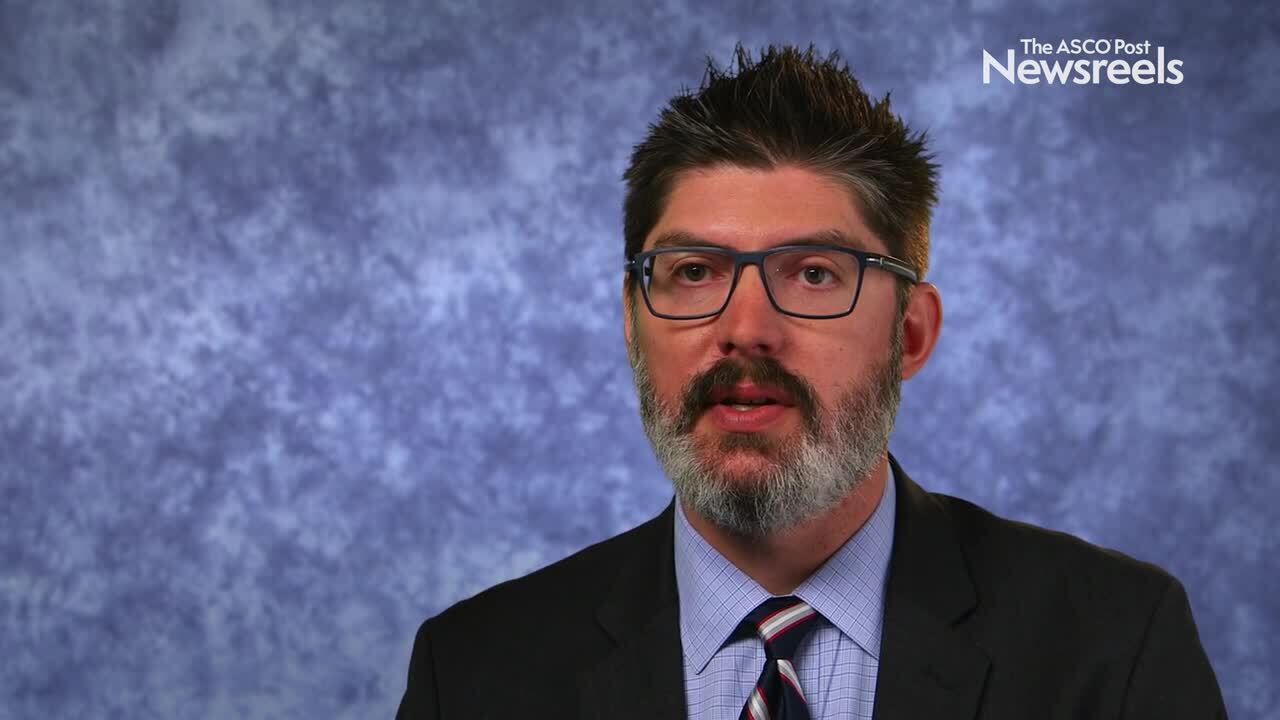Melinda L. Telli, MD, on NCCN Guidelines Updates for HR-Positive, HER2-Negative Early-Stage Breast Cancer
NCCN Annual Conference 2019
Melinda L. Telli, MD, of the Stanford Cancer Institute, discusses the various systemic therapies for patients with early-stage hormone receptor–positive, HER2-negative disease.
Matthew A. Gubens, MD, of the UCSF Helen Diller Family Comprehensive Cancer Center, discusses recent updates to the NCCN Guidelines in non–small cell lung cancer, including the use of pembrolizumab as a single agent or in combination based on PD-L1 status, treatment selection in squamous and nonsquamous patients, and how mutational status affects treatment strategy.
Neil P. Shah, MD, PhD, of the UCSF Helen Diller Family Comprehensive Cancer Center, discusses the feasibility of discontinuing tyrosine kinase inhibitor therapy in select patients with chronic phase chronic myeloid leukemia outside of clinical trials.
Margaret A. Tempero, MD, of the UCSF Helen Diller Family Comprehensive Cancer Center, discusses new adjuvant therapy options for patients with pancreatic cancer, and germline testing, including testing for microsatellite instability/mismatch repair genes as well as molecular analysis of all tumors.
Wells A. Messersmith, MD, of the University of Colorado Cancer Center, discusses results of recent clinical trials, emerging treatment options, and approaches that may improve outcomes in patients with metastatic colorectal cancer.
Frederick L. Locke, MD, of the H. Lee Moffitt Cancer Center and Research Institute, discusses recent approvals of chimeric antigen receptor T-cell therapies in leukemia and lymphoma, and how clinicians are using infrastructure, navigation, and early referrals to maximize response and minimize toxicity.
